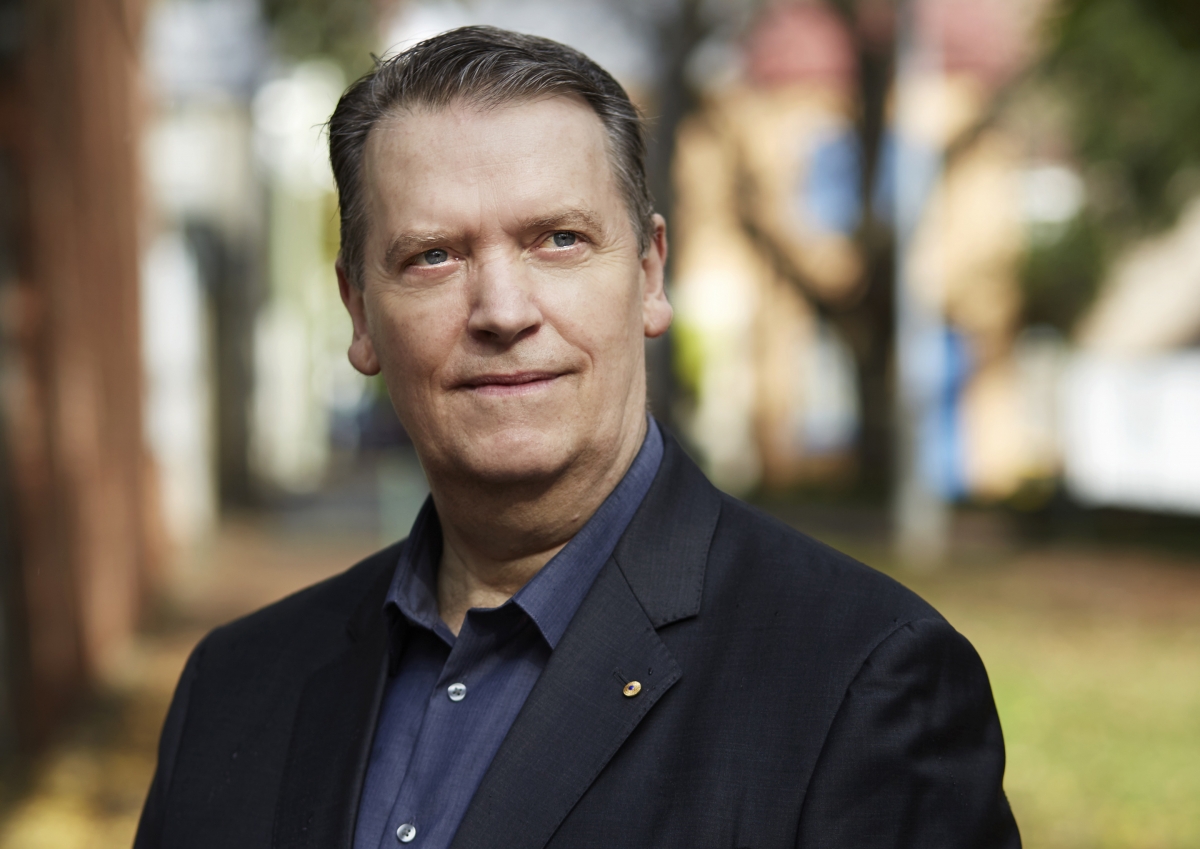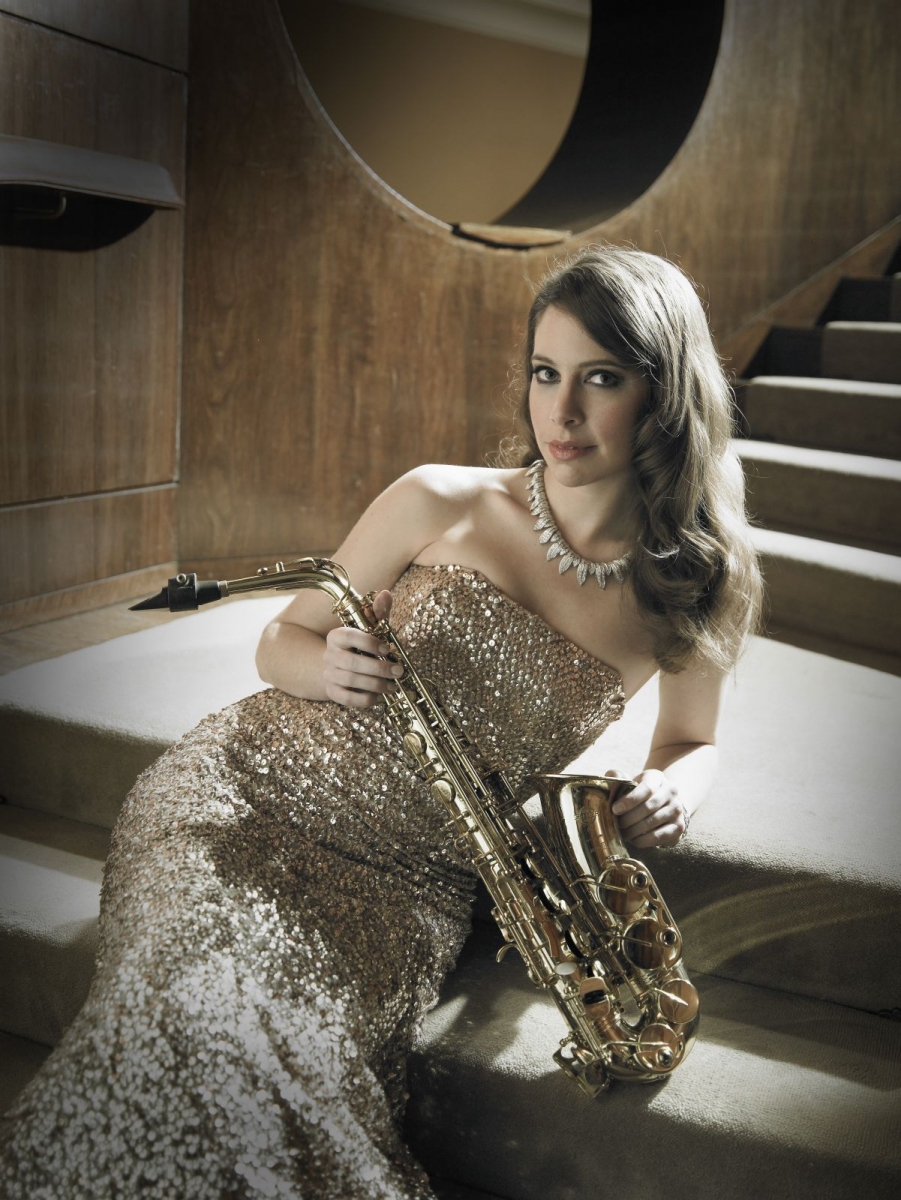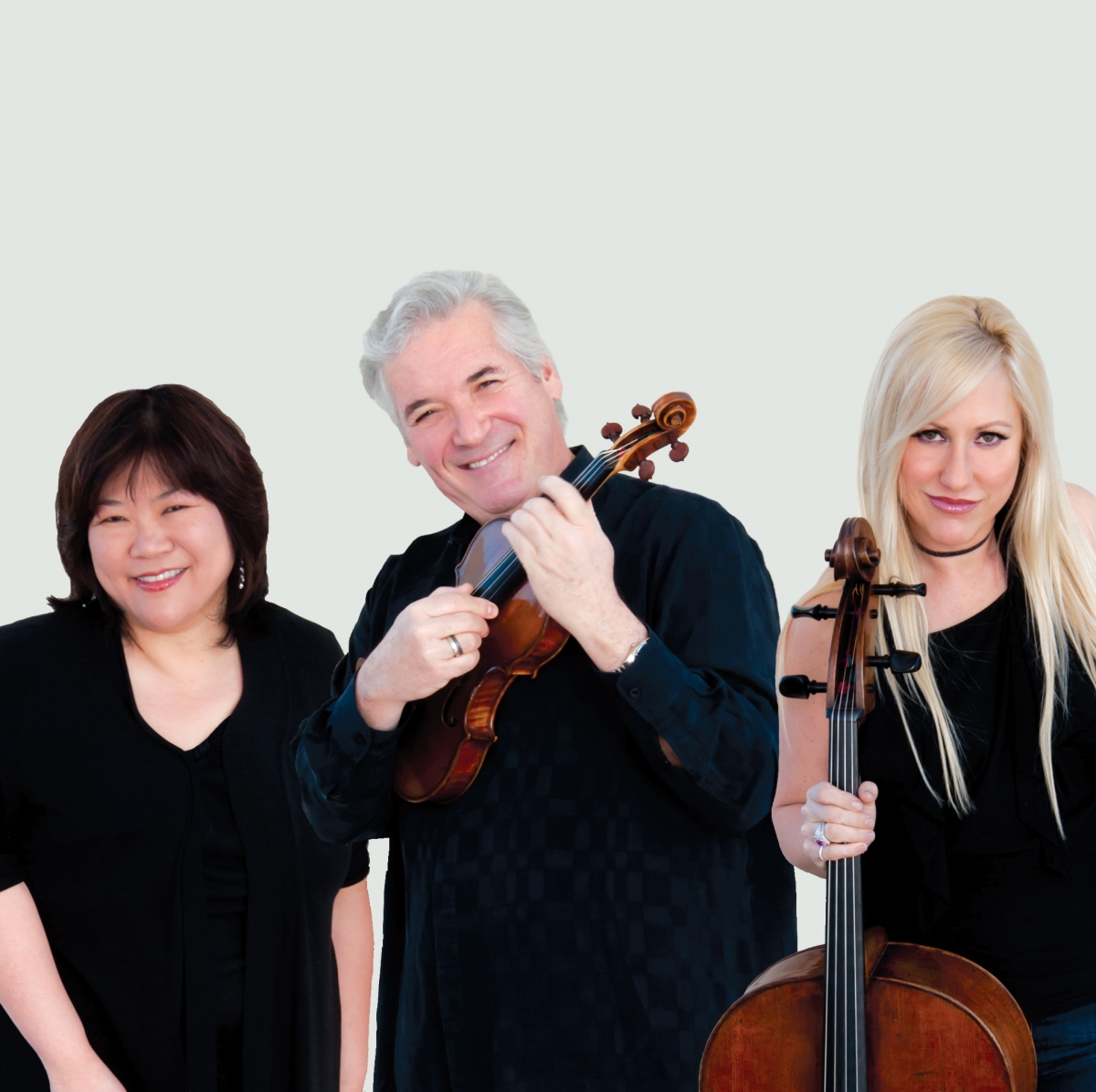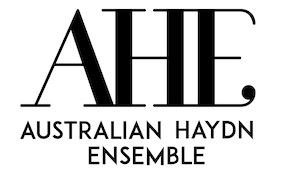Chamber music attracts devout followers. Celebratory music festivals have popped up all over the country, while in every city churches and concert halls are host to dozens of piano trios, string quartets and wind ensembles. But what is it about chamber music that so many people respond to?
“I believe it has to do with the sense of intimacy,” Musica Viva’s Artistic Director Carl Vine tells me. “It is fantastic watching a symphony orchestra, but they are part of a corporate event. When you have a string quartet, you actually see the relationship between the players – and you become part of that relationship. When talking to chamber musicians, they always refer to the response of the audience.”
 Musica Viva Artistic Director Carl Vine. Photo © Keith Saunders
Musica Viva Artistic Director Carl Vine. Photo © Keith Saunders
“There’s a sense of concentration on stage,” he says, “and as an audience member you feel like you are truly part of the music-making – because you are. And the musicians acknowledge freely that a festival audience makes them feel like they are playing better.”
Sifting through the diverse repertoire and artists on the programme for the 2017 Musica Viva Festival, you might not pinpoint an over-arching theme or topic. But there is one common element: “It’s a massive expression of chamber music,” Vine explains. “Unlike a ‘normal concert’, it’s a constantly changing kaleidoscope of great artists doing what they love and do best, so the ear never becomes tired.”
For such a condensed programme, choosing the right combination of artists and repertoire is essential. What were the considerations for Vine when selecting the musicians? “We wanted the star power of the Zukerman Trio,” he tells me. “Then it’s a question of rounding out the artistic excellence in as many ways as possible.”
Variety is an important consideration. “That’s where Amy Dickson comes in,” Vine explains. “It’s very rarely that Musica Viva presents a saxophonist – so that’s exciting.” Dickson will join the Elias Quartet, the Goldner Quartet and Arcadia Winds. “That’s what’s special about the Festival,” Vine says, “the concentration of artists in a capital city over such a compressed time frame.”
So what are the major challenges involved in programming such a compressed musical event? “Ensuring that the spread of repertoire is exciting and that each programme is satisfying,” Vine says. “That’s why I generally don’t use themed programmes, because I think there’s enough going on in terms of repertoire diversity,” he explains. “The vital thing is that every work represents a pinnacle of its form and is performed by those musicians who can do it best.”
 Saxophonist Amy Dickson
Saxophonist Amy Dickson
This year’s Festival will feature two world premieres. The first is Bright Birds and Sorrows by Ross Edwards. “The Edwards was one of the earliest works programmed for the festival,” Vine says, “and it was to present a focus on Amy Dickson and to follow the relationship between her and Ross Edwards.” This will be Edwards and Dickson’s third collaboration, the pair having worked together on Edwards’ 2012 saxophone concerto Full Moon Dances, and then Frog and Star Cycle – his concerto for alto saxophone, percussion and orchestra, which Dickson premiered with the Sydney Symphony Orchestra last year. “This should be a fitting continuation of their musical partnership,” says Vine.
The second world premiere will be a new String Octet by Jakub Jankowski. “The Jankowski is interesting, because he is not known by many people at all,” says Vine. “I think he’s incredibly talented – a young composer from Adelaide, recently graduated from Adelaide University. But he’s also an accomplished cellist and that puts him in an unusual position to be able to write a string octet.”
“He’s played octets, he has his own quartet, but in terms of creating new music for a festival,” Vine explains, “he’s in the rare position of being possibly the best equipped composer in Australia to write for these forces.”
What then are the special pleasures and challenges of the Musica Viva Festival for Vine? “It’s unusual to have a chamber music festival in a capital city,” he explains. “They are almost always in the country. So the challenge for us is always to create an experience that is completely unique,” he says, “because there are about ten or a dozen chamber music festivals throughout Australia.”
 The Zukerman Trio. Photo © Cheryl Mazak
The Zukerman Trio. Photo © Cheryl Mazak
“It’s really the breadth of activity,” Vine says. “Part of the specialness of this festival is the relationship with the Australian Youth Orchestra. Pinchas Zukerman will be running a masterclass with members of the AYO’s chamber music programme, there are performances and masterclasses with the AYO, a three-day music workshop for young people and a one-day free music experience – also for young people – on the Friday. It’s really the richness of every aspect of making chamber music that, I think, makes this particular festival so unique.”
Vine is tactfully reluctant to choose a favourite concert. Between the opening concert and the Festival’s finale, he says, “are crammed all these little gems – it’s really hard to pick them out.”
“Every programme has a completely contrasting dynamic,” he says. “I think there’s something in every concert. For people who love chamber music, you can’t miss it.”
Carl Vine’s Festival Highlights
Dvořák’s Dumky
“If I had to pick a highlight, I would have to say the Dvorˇák Dumky on the opening night,” says Vine. Concert 1 opens with Amy Dickson performing Florent Schmitt’s Légende and sees the Goldner Quartet and Lambert Orkis tackle Robert Schumann’s Piano Quartet Op. 44 before the Elias Quartet perform Benjamin Britten’s Third String Quartet. The Zukerman Trio brings the evening to a close with Dvorˇák’s galloping Dumky Trio.
Primo Premieres
Ross Edwards’ new work for Amy Dickson, Bright Birds and Sorrows, caps off Concert 4 on Saturday evening. The concert also features Vasks’ Third String Quartet, Brahms’ Third Violin Sonata and Broadstock’s My Feet Want to Dance but my Eyes Want to Sleep. Jakub Jankowksi’s String Octet brings the Festival to a close on Sunday afternoon, sharing a programme with Decruck, Crumb and Beethoven’s famous Archduke Trio.
Sunday Surprise
“There’s a remarkable concentration of music on the Sunday morning,” says Vine, “with two works by Martin Wesley-Smith [White Knight and Beaver and For Marimba and Tape] – a critically renowned Sydney composer – and a new work by one of Sydney’s youngest composers, Elizabeth Younan [Shoreditch Grind].” The concert is bookended by Mozart’s Horn Quintet in E Flat, K407 and Beethoven’s Third Cello Sonata.
The Musica Viva Festival 2017 is at the Sydney Conservatorium of Music from April 20 to 23. Tickets are on sale now.












Comments
Log in to join the conversation.